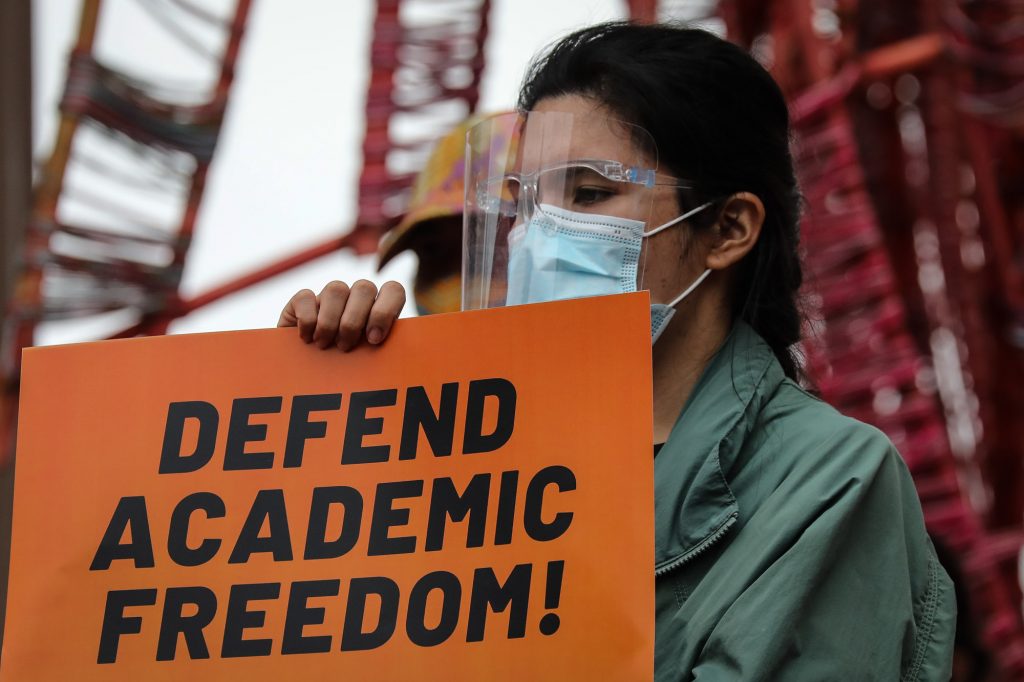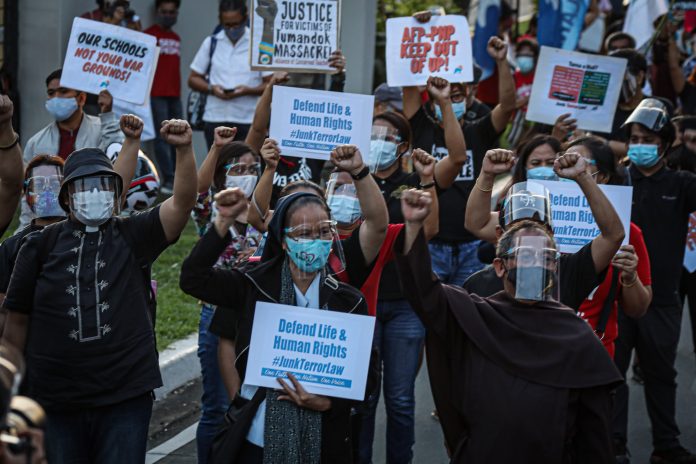Catholic educators in the Philippines decried the red-tagging by the military of some of its schools and universities in recent weeks.
In a statement released on January 30, the Catholic Educational Association of the Philippines (CEAP) categorically said that it does not support the cause of communist rebels.
“Our Catholic identity – enshrined in our values, vision, mission, goals, policy and practice – is directly in opposition to the beliefs of the [Communist Party of the Philippines – New People’s Army],” it said.
“It has been said before, and we affirm it once more: We do not support the CPP-NPA,” read the statement of the association of Catholic educators.
The group was reacting to “unsubstantiated claims” made by the National Task Force to End Local Communist Armed Conflict linking a number of Catholic educational institutions to the rebels.
“We remain committed to live out our Catholic principles of respect for human life and liberties, and promotion of social justice and peaceful transformation,” read the CEAP statement.
“We continue to promote our constitutionally-guaranteed basic human rights of free speech, expression, and association,” it added.
The group said it will continue to uphold the academic freedom given to educational institutions by the 1987 Constitution and affirmed by the Supreme Court.
“This freedom provides our society a space, free from external constraints, where truth can be sifted from untruth and the right from wrong,” said the group.
“We believe this is essential and necessary for the benefit of society and the common good,” it added.
CEAP appealed to the government to stop red-tagging educational institutions because it “endangers the security and welfare of teachers and students.”
Instead, it encouraged the government to “address the roots of the problem of insurgency like poverty and marginalization.”
The group expressed its commitment to engage with the government on various projects in a “spirit of partnership and dialogue.”
Lt. Gen. Antonio Parlade, spokesman of the National Task Force to End Local Communist Armed Conflict, earlier claimed that several schools in the national capital serve as recruitment grounds of communist rebels.

Among the schools he named were the Ateneo de Manila University, De La Salle University, University of Santo Tomas, and the Far Eastern University.
The four schools have released a joint statement denying the accusation. They said the allegation was “a rehash of the public accusation the general made in 2018.”
In October 2018, at least 18 universities, including Catholic educational institutions, were implicated in an alleged plot to oust President Rodrigo Duterte.
In a joint statement this week, the schools described the allegation as “irresponsible.”
The universities assured that they “value the Filipinos’ basic Constitutional rights of speech, thought, assembly, and organization.”
“We take as a sacred trust our primary responsibilities to promote learning and safeguard the rights of the young who are entrusted to our care,” the schools said.
“We are committed to this mission and have always held ourselves accountable to our primary constituents, the learners, and by extension, their parents,” they continued.
They also stressed the need to “retain independence and autonomy from the State and other social institutions.”
In its statement, CEAP, the country’s largest private educational association with almost 1,500 member-schools, expressed support to the statements released by the four schools.
The Catholic Bishops’ Conference of the Philippines has described as “ridiculous” the allegations that several Catholic universities have become “breeding grounds” of communists.
“It is ridiculous and we’re glad that these universities banded together and came up with a collective statement to question the red-tagging,” said Bishop Pablo Virgilio David of Kalookan, vice president of the bishops’ conference.









